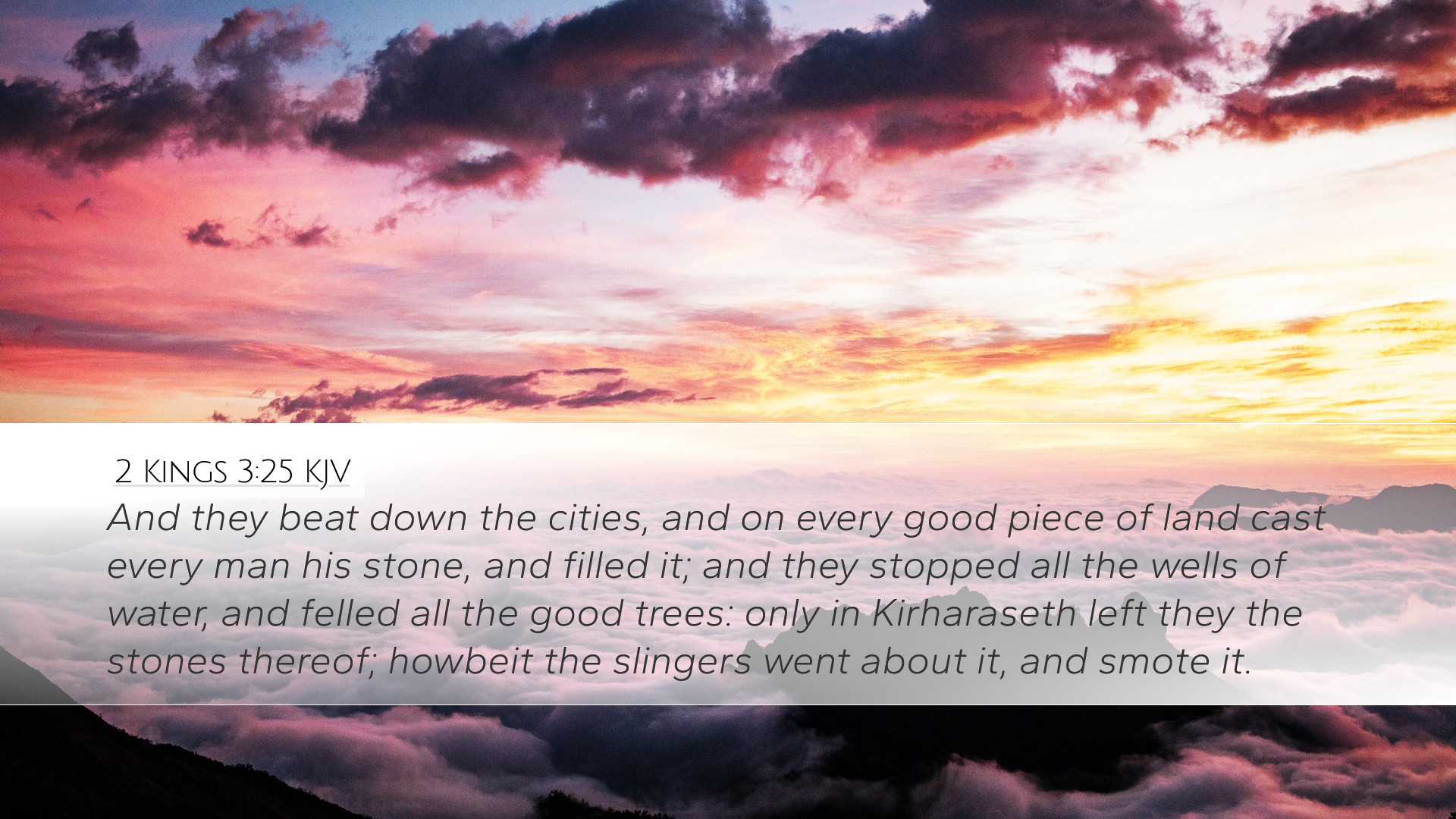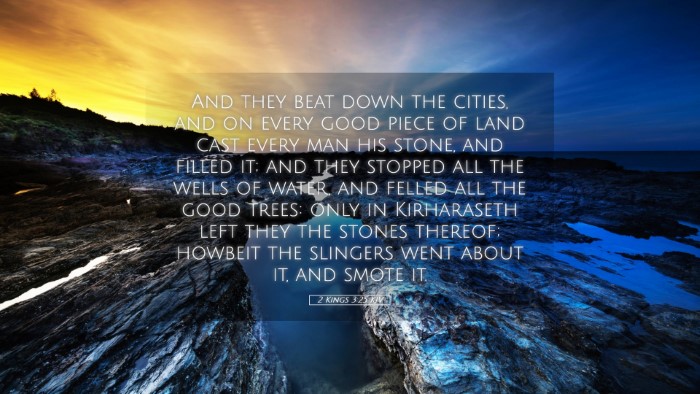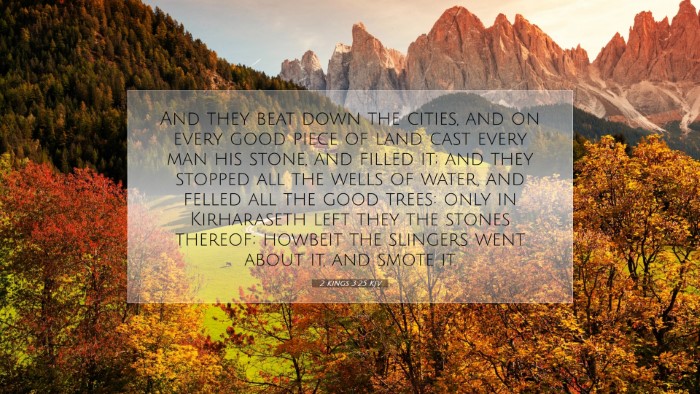Old Testament
Genesis Exodus Leviticus Numbers Deuteronomy Joshua Judges Ruth 1 Samuel 2 Samuel 1 Kings 2 Kings 1 Chronicles 2 Chronicles Ezra Nehemiah Esther Job Psalms Proverbs Ecclesiastes Song of Solomon Isaiah Jeremiah Lamentations Ezekiel Daniel Hosea Joel Amos Obadiah Jonah Micah Nahum Habakkuk Zephaniah Haggai Zechariah MalachiVerse
2 Kings 3:1 2 Kings 3:2 2 Kings 3:3 2 Kings 3:4 2 Kings 3:5 2 Kings 3:6 2 Kings 3:7 2 Kings 3:8 2 Kings 3:9 2 Kings 3:10 2 Kings 3:11 2 Kings 3:12 2 Kings 3:13 2 Kings 3:14 2 Kings 3:15 2 Kings 3:16 2 Kings 3:17 2 Kings 3:18 2 Kings 3:19 2 Kings 3:20 2 Kings 3:21 2 Kings 3:22 2 Kings 3:23 2 Kings 3:24 2 Kings 3:25 2 Kings 3:26 2 Kings 3:27

